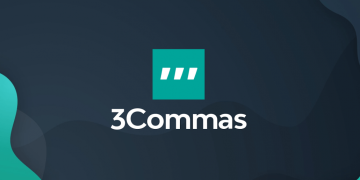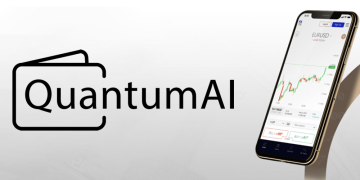The surging demand for cryptocurrency has driven the proliferation of various digital wallets or eWallets within the space. Secure and decentralised crypto wallets play a pivotal role in safeguarding, exchanging, and facilitating the transfer of valuable digital assets. Consequently, we must thoroughly assess the optimal crypto wallet that aligns with your specific requirements. This Trust Wallet review covers everything you need to know, including supported coins, fees, security, user-friendliness, and more.
Type of wallet | Software (desktop and mobile) |
Price | Free |
Fees | Network fee for sending assets; 1% fee on in-app crypto purchases |
Coins supported | 61 cryptocurrencies plus custom tokens |
Earn (staking rewards) | Staking option for 12 cryptocurrencies |
Customer service | Help page and direct customer support via email |
In-App features | Buy, sell, swap and stake cryptocurrencies, collect NFTs, and explore dApps |
SPV or Full Node | Simplified Payment Verification (SPV) |
Mobile App | Yes (iOS and Android) |
Trust Wallet Overview
In 2017, Viktor Radchenko, a Ukrainian developer, established Trust Wallet to address custody concerns arising from the expanding array of cryptocurrencies and ICOs. Over time, the cryptocurrency landscape has continued to burgeon, featuring an ever-increasing demand for secure and dependable solutions for the storage of digital assets.
Notably, the company came under the ownership of the industry behemoth Binance in 2018. Trust Wallet stands out as an entirely open-source platform, allowing developers to use its code in constructing their decentralised applications to benefit the cryptocurrency community. Presently, Trust Wallet boasts compatibility with thousands of Dapps, with more added regularly, ensuring its users remain at the forefront of cutting-edge digital currency use cases. This adaptability is indeed commendable.
Pros





Cons



Trust Wallet Fee Structures
The Trust Wallet app and Chrome extension can be downloaded entirely free of charge, and there are no fees associated with storing cryptocurrencies within Trust Wallet.
Regarding receiving cryptocurrencies or NFTs from another wallet location, Trust Wallet imposes no charges whatsoever.
However, it’s worth noting that Trust Wallet does levy fees when transferring funds from Trust Wallet to another user, which is standard practice across all cryptocurrency wallets due to the incurring GAS fees.
By default, Trust Wallet gives users the ‘suggested’ network fee when initiating cryptocurrency transfers. This fee is determined by real-time demand and typically ensures a smooth transaction process.
Nevertheless, users can adjust the GAS fee they are willing to pay, although this carries a risk. Setting the fee too low might lead to rejection, while a higher fee can expedite the transaction.
It’s important to clarify that Trust Wallet does not profit from GAS fees. Instead, it merely passes these fees on to the respective network.
When it comes to swapping tokens from within the wallet interface, Trust Wallet does not charge any fees. However, users should exercise discretion when evaluating the exchange rate provided. Other platforms may offer more favourable rates.
Those seeking better exchange rates might consider connecting to a decentralized application (dApp) instead. Whether it’s SushiSwap, Uniswap, or PancakeSwap, Trust Wallet enables access to all dApps via its app and browser extension. This provides users with alternative options for swapping tokens.
Trust Wallet Staking
Staking in cryptocurrency, often derived from the term “Proof of Stake” (PoS), is pivotal in creating new blocks through a consensus algorithm. These freshly minted blocks are subsequently integrated into the blockchain.

The validation of new transactions within the blockchain relies on the coins staked by holders. The quantity of staked coins dictates the capacity for validating transactions. Staking locks these coins within a wallet for a predetermined period while additional coins, somewhat akin to interest earnings, are rewarded and added. Much like a traditional interest system, the more you stake, the more you stand to receive.
Therefore, if you aspire to generate interest from your cryptocurrency holdings or seek a voice in governing specific currency networks, exploring Trust Wallet’s staking functionality is highly advisable.
It’s important to note that not all cryptocurrencies support staking, although this list is gradually expanding. In the near future, both Ethereum (ETH) and Cardano (ADA) are expected to introduce staking capabilities as they transition from Proof-of-Work (PoW) to Proof-of-Stake (PoS) systems.
Presently, Trust Wallet facilitates staking for the following cryptocurrencies: Tron (TRX), Tezos (XTZ), Cosmos (ATOM), Kava (KAVA), Osmosis (OSMO), Binance Coin (BNB), Terra (LUNA), and Algorand (ALGO).
While other staking coins exist, the timeline for their availability on Trust Wallet remains uncertain. To delve deeper into these coins and understand the staking process comprehensively, you can explore my colleague Steve’s in-depth analysis of the subject.
Trust Wallet NFTs

Trust Wallet offers a noteworthy feature – NFT storage and a built-in gallery for user convenience. Users can seamlessly explore their favourite Ethereum and Binance Smart Chain (BSC) NFTs within the app. The NFT Storage feature currently supports displaying various token standards, including ERC721, ERC1155 on Ethereum and BEP721, BEP1155 as NFTs on BSC.
Trust Wallet enhances the user experience by facilitating easy access to decentralized applications (DApps). Trust Wallet incorporates an in-app DApp browser for Android users, while iPhone users can utilize WalletConnect. This accessibility empowers Trust Wallet users to conveniently engage with a diverse array of NFT-powered DApps, enabling them to stake non-fungible tokens to earn yields. Users can connect directly to NFT farming DApps through the Trust Wallet app with just a few clicks.
Beyond staking NFTs for yield farming via platforms like SuperFarm, Trust Wallet instantly connects users to NFT marketplaces. Users can mint and sell NFTs within these marketplaces, which can be managed and viewed directly through the app.
Trust Wallet Token (TWT)
Trust Wallet features its governance token, known as TWT. Initially, TWT was introduced with the primary objective of educating and expanding the crypto community. Notably, it did not undergo an ICO/IDO, instead being distributed freely to individuals who referred the app to friends and introduced new users. At present, the token is valued at $0.70 per unit.
TWT was launched with an initial supply of 90 billion tokens, a quantity subsequently reduced to 1 billion by burning excess tokens. The token allocation is as follows: 40% for user acquisition, 15% for developers, 15% for the TWT community, and 30% reserved for storage. It’s worth noting that the development team has no specific allocation.
TWT has demonstrated effectiveness as a governance token. In an inaugural governance vote conducted through the app, users were allowed to decide whether to integrate Filecoin support into the wallet. Impressively, 96.73% of participants voted ‘Yes,’ leading to Trust Wallet’s successful implementation of FIL token support approximately three weeks later.
Trust Wallet dApps
This stands out as one of the pivotal features within the Trust Wallet app, and its potential for expansion over the coming years is undeniable. Designed with full mobile optimisation, it aims to offer a more user-friendly alternative to Metamask.
The realm of DApps continues to expand across Ethereum and various other blockchains, offering diverse functionalities and applications. Recent additions include platforms like LooksRare, a cutting-edge NFT marketplace that incentivises traders and users with passive income through its native LOOKS token. Additionally, established DApps like Uniswap, PancakeSwap, Aave, and Compound cater to different facets of the burgeoning Decentralized Finance (DeFi) sector.
Furthermore, gaming platforms are emerging, promising crypto-based rewards, while media like KnownOrigin allow users to collect rare digital art. With its user-friendly interface, Trust Wallet facilitates seamless access to all these offerings and is poised to play a leading role in driving adoption within this sphere.
To ensure the reliability and quality of new DApps, Trust Wallet rigorously tests and vets them before integration into the platform. The wallet also supports a DApp marketplace where developers can showcase their creations for others to assess and explore.
Trust Wallet DEX

Within Trust Wallet, users can access two distinct options for buying and selling their assets: the Swap and Exchange Option.
The Swap Option offers a simplified approach to token transactions seamlessly integrated into the Trust Wallet. For instance, you can conduct swaps involving Ethereum (ETH) and Binance Smart Chain (BNB) by combining the 1Inch Protocol. Swaps involving Binance Chain (BNB) are also facilitated via the Binance DEX.
On the other hand, the Exchange Option provides a more traditional crypto exchange experience, complete with an order book and the ability to set Buy and Sell orders. However, note that the Exchange Option is exclusively available for trading between BNB and BEP2 tokens. Trust Wallet directly connects to Binance DEX to execute these trades.
Trust Wallet User Experience
During our assessment, we found Trust Wallet to be exceptionally user-friendly. Even individuals without experience with eWallets will find the platform easy to navigate. Trust Wallet offers mobile applications for Android and iOS devices and a Chrome browser extension, all of which can be downloaded and installed free of charge.
Creating a new wallet on Trust Wallet is a straightforward process that typically takes only a few seconds to get started.
For users seeking more information, Trust Wallet provides a wealth of resources and guidelines on its website, ensuring that users can access comprehensive information about its features and services.
The platform’s widespread popularity and positive user experiences are evident in the reviews on Google Play and the App Store, which boast ratings of 4.5/5 and 4.7/5, respectively. Furthermore, Trust Wallet enjoys favourable ratings across various websites, with thousands of positive reviews.
Trust Wallet Beta Program
For technology enthusiasts, there’s nothing quite as exhilarating as getting early access, and that’s what Trust Wallet’s Beta Program offers. If you’re eager to contribute to the enhancement of Trust Wallet, you can join the beta program for iOS and Android.
Members of the Beta program enjoy access to “Trust Preview Builds” – pre-release versions of Trust Wallet that are not yet available to the general public. This grants them the privilege of testing and refining certain features before they are officially launched. Beta users’ valuable and actionable feedback plays a pivotal role in improving Trust Wallet.
Their feedback is vital for assessing product satisfaction and enhancing overall quality. Whether it involves brilliant suggestions for new features or insights into optimising existing ones, these recommendations are warmly received as they establish a direct line of communication between Beta users and the Trust Wallet development team.
Trust Wallet Security Features
Trust Wallet operates as a non-custodial wallet, granting users complete control over their private keys and digital assets, encompassing cryptocurrencies and NFTs. However, it is imperative that users diligently safeguard their private keys, often referred to as recovery phrases, ensuring they are stored securely and maintained in the correct order for backup purposes.
While the security of Trust Wallet relies on its users’ responsible management of recovery phrases, an additional layer of protection can be implemented within the mobile app. This includes the option to enable features such as Touch ID or Face ID authentication, enhancing the security of the wallet application. Users can also configure the auto-lock time, restricting unauthorised individuals from accessing their wallets.
Nonetheless, note that Trust Wallet operates as a hot wallet, rendering it susceptible to phishing scams. Therefore, users must take utmost care in safeguarding their recovery phrases to prevent the irreversible loss of their funds.
Trust Wallet Customer Service
Trust Wallet’s official beginner guide says the platform boasts a responsive customer support team. As the manual outlines, users can contact the team via Telegram or Twitter for assistance.
We discovered a ticket submission form after visiting the “support” section at the website’s bottom. Users can utilise this form to submit their concerns or inquiries to the support team. However, the expected response time for such tickets needs to be specified.
Trust Wallet also maintains a “community” section, accessible at community.trustwallet.com. This section encompasses dedicated blogs, forums, FAQs, and various discussions, serving as a valuable resource for users to troubleshoot issues independently.
With a substantial user base exceeding 60 million, fellow users may have encountered similar challenges and can offer assistance through the forums. Nevertheless, users are advised to exercise caution and refrain from sharing their private keys or any sensitive Trust Wallet information with others on the forum.
Final Verdict
Trust Wallet is one of the most widely utilised software wallets, celebrated for its user-friendly interface and comprehensive support for multiple blockchain networks and digital assets. Users can engage in cryptocurrency trading and storage within this single interface, interact with decentralised applications, explore NFT marketplaces, and partake in asset staking for potential additional earnings. These features render Trust Wallet a comprehensive and all-encompassing solution for various crypto-related needs. Moreover, it upholds a non-custodial structure, thereby upholding the privacy and anonymity of its users.
However, it’s worth noting that the in-app purchase fees can be a source of confusion for newcomers. This confusion arises from Trust Wallet integrating multiple third-party exchanges, each imposing varying charges for cryptocurrency acquisitions. Hence, users must conduct diligent research and ascertain the exact fees associated with their intended purchases before proceeding.












